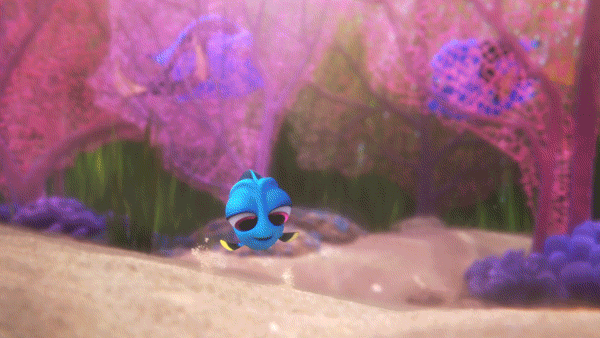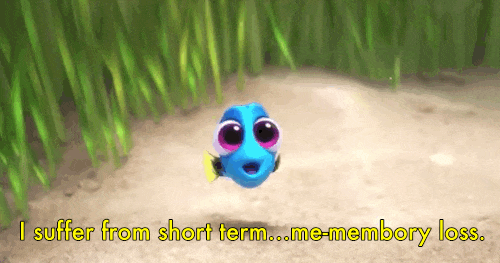After 12 long years of waiting, "Finding Dory" finally came to theaters. Like many people my age, I quickly shoved a few kids out of my way at the movie theater and sat front and center, my eyes glued to the screen as my favorite childhood fish swam their way back into my heart.
While I expected the movie to be great (I mean, come on, Pixar can do nothing wrong), I didn't expect to be as moved as I was. The film focuses on the life of Dory as she struggles to remember - and find - her family while "suffering from short term memory loss." Throughout the movie, this disability pops up over and over again, causing Dory and her friends to barely make it to the end of her adventure. Some of her other friends also had handicaps of their end, such as Destiny (the whale shark who was extremely near-sighted) and her beluga friend who couldn't use his echolocation. Dory even befriended an octopus who had lost one of his arms.
Here's why this movie hit me so hard: I am the proud big sister of a child with severe special needs. I have experienced first hand how difficult it is to understand and communicate with children who have mental disabilities. This movie could be a game-changer for the families who support and love these children, if we just take a step back and see this movie for the teaching tool that it turned out to be.
Here are 5 lessons that "Finding Dory" can teach us about how to communicate and love children with special needs. (Be careful for spoilers if you haven't made it to the theater yet!)
1. Always stay positive.
This is the best thing you can do for both you and those around you. Disabilities don't have to hold you back! There are always positive things to find throughout your day, even if it feels hopeless. Staying upbeat and happy can encourage these children to remain positive themselves.
2. Practice different communication tools.
Dory's parents did a wonderful job of practicing different life skills at home. This will make it easier for the child when the encounter these situations in the real world. After all, practice makes perfect, right? Special needs children see the world in a different way. Making these uncomfortable situations into little games can make it seem less intimidating the next time around. It is always a good idea to practice being able to explain thoughts and feelings.
3. Be proud of their accomplishments.
Every time Dory successfully remembered something throughout the movie, her friends and family were the first ones to congratulate on her accomplishments. Even the little things can be a big deal for children with special needs, and many of them are used to constantly being corrected or scolded. Be the one that cheers them on when they get through their every day routines successfully or master a new social skill.
4. Recognize their strengths.
Don't always focus on their disability. There is so much more to a person than their weaknesses! My brother is a gifted athlete and it is so much fun to watch him play; you can see his fears fall away as he runs around the field. Marlin and Nemo found out in the movie that most of the time, Dory's solution was much better than any that they came up with. It turned into a mantra: What Would Dory Do?
5. Just keep swimming.
Parenting children with special needs can be difficult. It is tiring, frustrating, overwhelming, and usually just plain hard. But, no matter what happens, all you can do is just keep swimming. Every day is a new day. And keep in mind, by moving forward and supporting them, you are that child's hero.
Any movie that starts a conversation about different kinds of special needs is one to watch and rewatch. Seeing someone overcome obstacles can inspire those who see their problems as insurmountable.
Thank you, Dory.

























